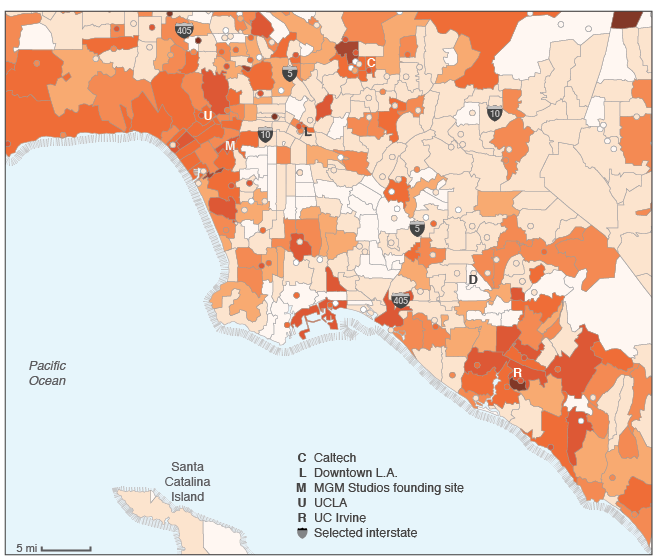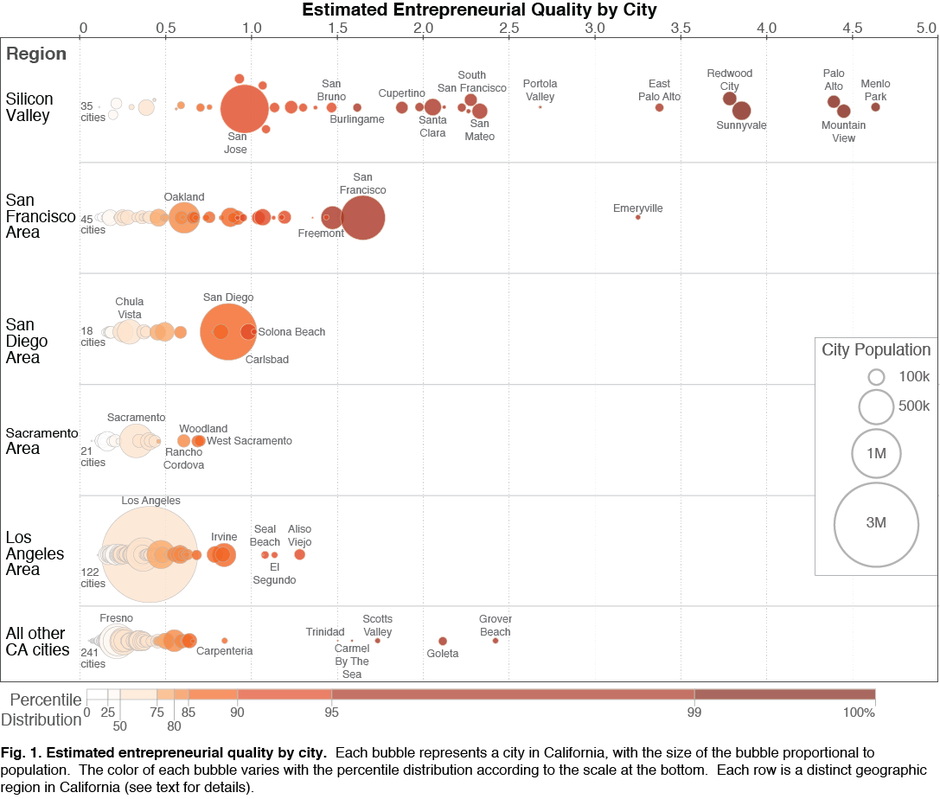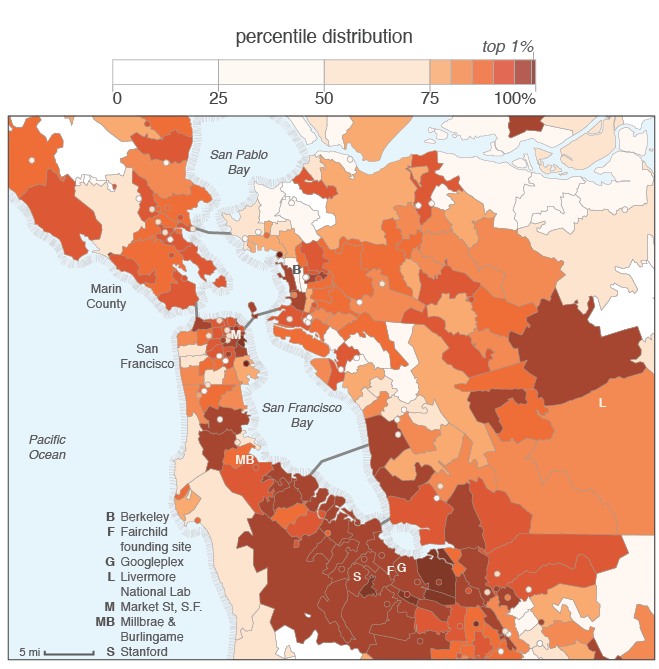Two MIT social scientists have developed a better way of mapping entrepreneurial quality.

It seems lately that every place in the United States wants to be home to the next Silicon Valley. But past attempts to rank America’s most entrepreneurial regions have focused on the sheer volume of start-ups in a given geography, without giving enough weight to how successful those start-ups have actually been. The result can be lists putting the likes of Mississippi and Alaska ahead of California in the start-up kingdom, and naming Montana the entrepreneurial capital of the country.
With all due respect to Montana, a pair of MIT scientists think they’ve found a better way. In research set for publication in the journal Science, innovation scholars Jorge Guzman and Scott Stern reveal a new scoring system that focuses on the quality of entrepreneurial activity in a region rather than the mere quantity—backed by some killer maps of start-up supremacy among California cities. The work could help policymakers understand the key factors, geographical and otherwise, that boost start-up success.
[infobox]”We’re all fans of Silicon Valley, but trying to be Silicon Valley is a deeply misinformed policy agenda.”[/infobox]“There are all sorts of ideas about how we should organise entrepreneurial ecosystems,” Stern tells. “We can now start to say: ‘Should we invest in accelerators, should we invest in entrepreneurial education, should we be investing in mentoring?’ What we’re proposing is one more performance indicator that might be useful for more granular assessments of policies and impact.”
Guzman and Stern mined the California business registry and gathered data on nearly 1.6 million ventures that emerged between 2001 and 2011. They took some basic initial firm characteristics (including types of incorporation or early patent filings) and paired them with the eventual outcomes of a firm’s success (including initial public offerings or acquisitions). Then they used all this data to create a model for predicting start-up success, which they verified against real-world cases.
From our partners:
The results of these predictions appear in the infographic below. Each bubble represents a California city sized by population. The darker the bubble, the higher a city’s predicted start-up quality (specifically, in this case, for businesses that launched between 2007 and 2011). The bubbles essentially represent a geographic power ranking of California entrepreneurship.
Of the 482 cities ranked by Guzman and Stern, Menlo Park, Mountain View, Palo Alto, Sunnyvale, and Redwood City—all Silicon Valley sites—earned the five top scores. The geographic dominance of Northern California is striking; the top four Silicon Valley cities in the MIT rankings possess 20 times the average start-up quality as California’s median city. Relative to the highly successful ventures upstate, Southern California (and especially Los Angeles) carries far less entrepreneurial power.
“There are two things going on in Silicon Valley: they have much higher entrepreneurial quality, but then that entrepreneurial quality is supercharged because more of those firms realise their potential than, for example, the equivalent firm in Los Angeles,” says Stern. “That’s saying there’s something happening in terms of institutions, in terms of capital, in terms of customers, in terms of partners in Silicon Valley that’s allowing these firms to accelerate in a way that might not be true in a less robust ecosystem.”

San Francisco, which ranked 20th overall, led the way for major California cities, followed by San Jose (45), San Diego (52), Oakland (77), Los Angeles (133), and Sacramento (177). Guzman and Stern were particularly impressed with the power of research institutions on promoting start-up quality. Areas around Stanford, UC-Berkeley, Lawrence Livermore, Caltech, UCLA, and UC-Irvine scored especially well in the predicted quality rankings.
Stern hopes entrepreneurial-minded regions will use the new scoring system to boost their own business base—not to copy Silicon Valley’s. Start-ups in Alaska, for instance, are better off focusing on the fishing industry or minerals or arctic research as opposed to, say, social media. Identifying these types of local business advantages, then developing the successful ventures that emerge, will produce the sort of “indigenous entrepreneurship” that drives an economy, he says.
“Trying to be the 35th-best Silicon Valley is probably not the right recipe for growth,” says Stern. “We’re all fans of Silicon Valley, but trying to be Silicon Valley is a deeply misinformed policy agenda.”
This article originally appeared in CityLab.















